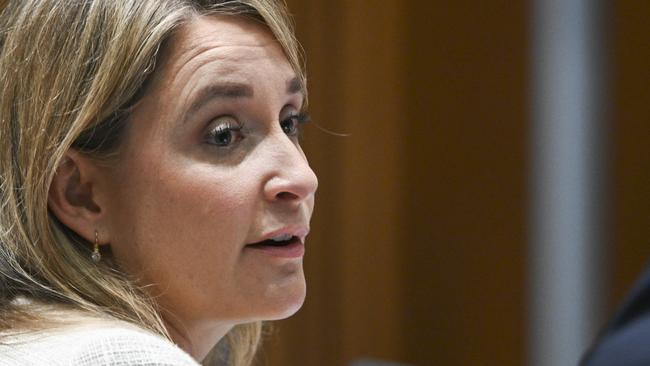
Brookfield was being coy on its rumoured acquisition on Thursday, but the company’s infrastructure assets are exactly what it likes and there are unlikely to be any Foreign Investment Review Board objections because the company is already Singapore-owned.
But would the Canadians be any better an owner of this critical infrastructure asset?
Optus has lurched from crisis to crisis in recent times. In the past year, a cyber attack resulted in up to 2.1 million customers potentially having information such as passports and driver’s licences exposed.
In November, it suffered a total network outage that left nearly half the population without phones or internet for 12 hours, causing train stoppages, daycare shutdowns and even emergency calls being unable to get through.
It showed the nation how vulnerable it is when communications systems stop working.
And despite suggestions that SingTel, which is majority-owned by the Singapore government’s investment vehicle Temasek, is hands off, former staff members say this is not the case.
However, former prime minister Paul Keating does not appear to be a fan of Brookfield.
He wrote an opinion piece less than four months ago that summed up his scathing position in relation to Brookfield’s attempted takeover of Origin Energy.
“We need strings-attached Canadian private equity capital front running a premium Australian asset like we need a hole in the head,” Mr Keating wrote. (Lazard, which Mr Keating advises, was acting for a related party opposing the deal.)
To be sure, they are different companies, but many would argue telecommunications is no less critical. The sector now falls under the Security of Critical Infrastructure Act, which also encompasses hospitals, utilities, energy generation assets and ports.
Brookfield is staying silent on its plans but would presumably hold the infrastructure assets of Optus in a closed-end fund, and then try to sell them back to Australian retail investors through an initial public offering within five years.
As for the retail assets, it’s unclear whether SingTel would have to keep them – quite possibly, given how long it has taken to get a buyer to the starting gates – or if Brookfield could find a joint venture partner.
SingTel chief executive Yuen Kuan Moon told The Australian in November, when asked if it was selling Optus, that the Australian unit was “an integral part of our group’s business”.
On Thursday night the company was forced to put out another statement saying it was not planning to sell the company at the rumoured $16bn valuation.
As reported by The Australian in November, SingTel had let the likes of Brookfield, Blackstone and the nation’s biggest superannuation firms know that it was open to offers for all or parts of its Australian business.
The company should be attractive because – dramas aside – it has upside potential on the cost side, and the potential to monetise its infrastructure assets.
Bigger rival Telstra sold a 49 per cent stake in its mobile towers in 2021 for $2.8bn, reflecting an EV/EBITDA multiple of 28 times.
Optus sold its Australian towers network to AustralianSuper in 2021 for $1.9bn, but it still has satellites, which Telstra does not have. Optus has five satellites and is the biggest provider in Australia, with range across Australia, New Zealand, Southeast Asia, Hawaii, Norfolk Island, Papua New Guinea, Lord Howe Island, Cocos-Keeling Islands, Christmas Island and McMurdo Sound.
When combined with parent company SingTel, the satellite reach extends across the Asia-Pacific, Europe, Africa, India and the west coast of the US.
Apart from satellites it has fibre, cable and mobile towers.
But things at Optus have clearly not been going to plan, resulting in a mass senior executive exodus.
CEO Kelly Bayer Rosmarin was forced to resign in November after the total network outage and has not yet been replaced.
Optus director of networks Lambo Kanagaratnam has also left, as has his second in command.
Singtel paid $14bn for the company in 2001 and it posted EBITDA of $2.1bn last year, up 4.5 per cent from the previous year, so based on the current comparable multiple for Telstra, it could have been worth in the order of $17bn if the wheels hadn’t started to fall off.




After about a year on the block it appears the only fast horse left in the race for the purchase of Australia’s second-biggest telecommunications company, SingTel Optus, is Canadian infrastructure investor Brookfield.